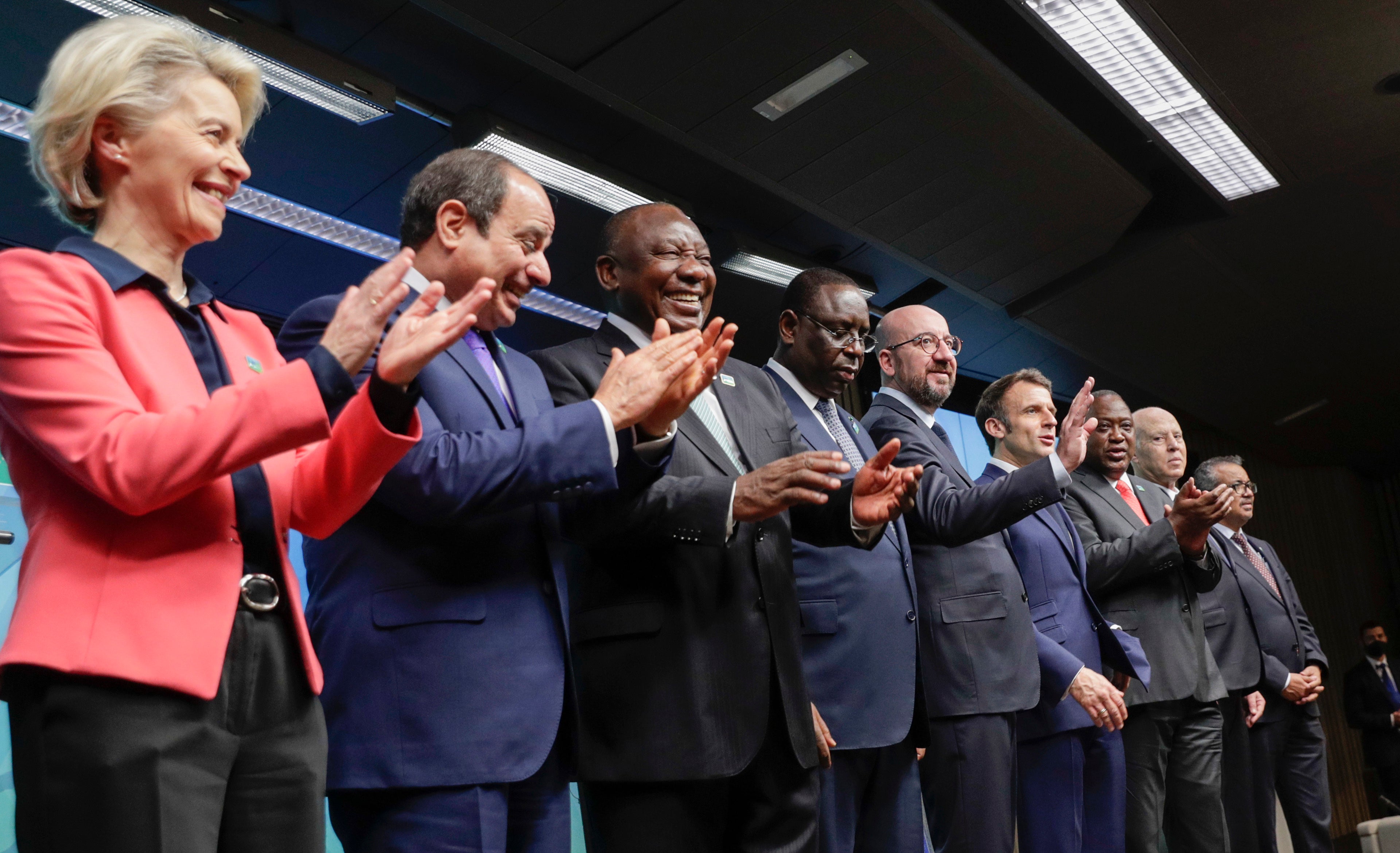Six African countries to receive mRNA vaccine technology
Egypt, Kenya, Nigeria, Senegal, South Africa and Tunisia will be the first African countries to receive the technology required to produce mRNA vaccines on the continent

Your support helps us to tell the story
From reproductive rights to climate change to Big Tech, The Independent is on the ground when the story is developing. Whether it's investigating the financials of Elon Musk's pro-Trump PAC or producing our latest documentary, 'The A Word', which shines a light on the American women fighting for reproductive rights, we know how important it is to parse out the facts from the messaging.
At such a critical moment in US history, we need reporters on the ground. Your donation allows us to keep sending journalists to speak to both sides of the story.
The Independent is trusted by Americans across the entire political spectrum. And unlike many other quality news outlets, we choose not to lock Americans out of our reporting and analysis with paywalls. We believe quality journalism should be available to everyone, paid for by those who can afford it.
Your support makes all the difference.The first African countries selected to receive the technology necessary to produce mRNA vaccines against COVID-19 are Egypt, Kenya, Nigeria, Senegal, South Africa and Tunisia, a summit meeting of European Union and African Union nations heard on Friday.
The six countries will receive the technology from the World Health Organization's global mRNA vaccine hub based in South Africa, with the aim to help them start producing vaccines as soon as possible.
In a bid to help poor countries to produce their own vaccine, the World Health Organization last year teamed up with local companies and scientists to replicate the mRNA-based COVID-19 vaccine.
Africa currently produces just 1% of coronavirus vaccines. According to WHO figures, only 11% of the population in Africa is fully vaccinated, compared with the global average of about 50%.
WHO Secretary-General Tedros Adhanom Ghebreyesus told the Brussels summit meeting that although more than 10 billion doses of COVID-19 vaccines have been administered globally, billions of people still remain unvaccinated.
“The tragedy, of course, is that billions of people are yet to benefit from these life-saving tools," he said, calling for an urgent increase of local production of shots in poor countries.
In addition to transferring the vaccine technology, the EU has been exporting millions of COVID-19 vaccine doses to Africa. The 27-nation bloc said it has supplied Africa with almost 145 million doses, with a goal of reaching at least 450 million shots by the summer.
South African President Cyril Ramaphosa said Friday's announcement “means mutual respect, mutual recognition" of what African nations can contribute as well as bringing in investment to the continent.
But Ramaphosa repeated his call for lifting patent protections on coronavirus vaccines that he believes would allow more manufacturers to produce the shots. The EU remains opposed to the move, favoring instead individual deals with companies for technology transfers and know-how.
The decision is up to the 164-member World Trade Organization. If just one country votes against a patent protection waiver, the proposal will fail.
Finland's Prime Minister Sanna Marin said talks on patents should continue because expanding vaccinations globally is key.
“ Otherwise we will see more variants and the next variant might be even (more) dangerous than (the ones that) we have seen,” said Marin.
___
Raf Casert in Brussels contributed to this story
___
Follow more of AP’s pandemic coverage at https://apnews.com/hub/coronavirus-pandemic and https://apnews.com/hub/coronavirus-vaccine.